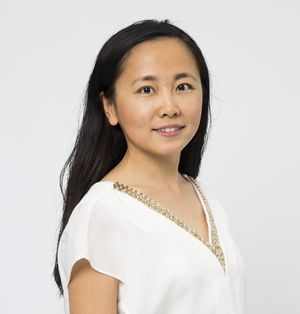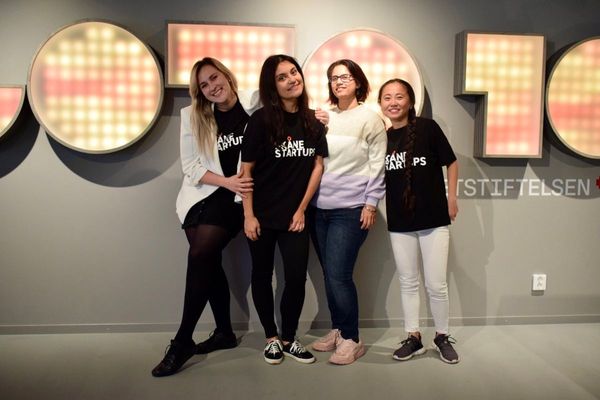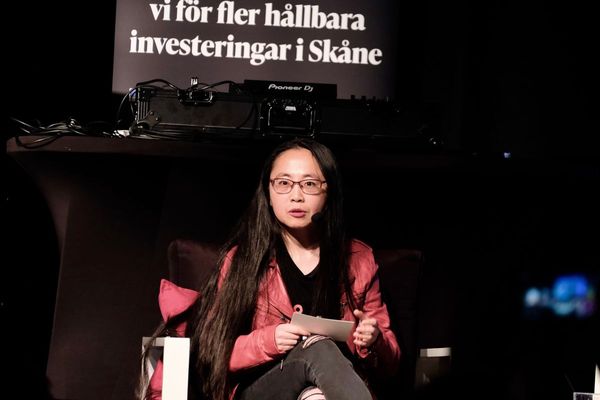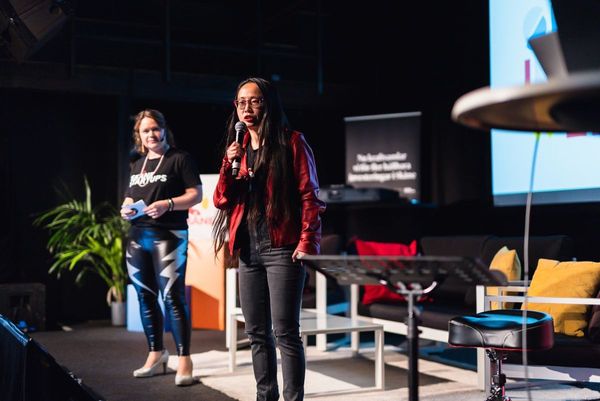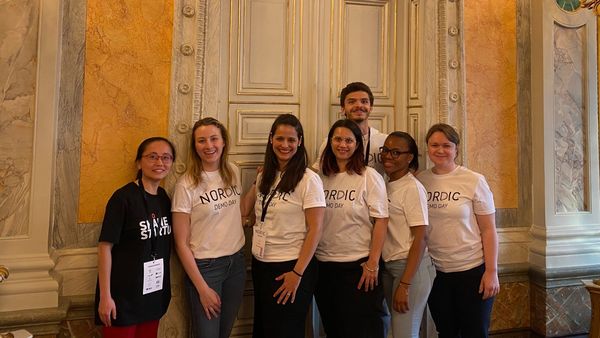Change happens when you challenge the status quo. Despite the hurdles that come with breaking barriers, women in business have shown us that doing so has the power to transform the world and break away from stereotypes. Take the example of Charlotte Persson, CEO, and Co-founder of Awaio. Through the workspace-sharing app Awaio, Charlotte is on a mission to disrupt the conventional office space industry to build a future that is more impactful, inclusive, and sustainable for everyone. However, at the core of her business is confidence – confidence to look at her industry and claim – a lot can be done.
With the idea of reflecting and being inspired by her entrepreneurial journey, we caught up with Charlotte in our latest edition of Startup Coffee Meetup, in collaboration with Goto10. From getting to know the inspiration behind the app to understanding the business model and getting acquainted with the concept of new-age office spaces, Awaio is successfully imprinting its mark in the tech world.
About Charlotte Persson
Charlotte has previously been involved in her family business since 2006. Before co-founding Awaio, she served as the CEO of Rubn, a lighting design and luminaries business for private homes and premium spaces. Charlotte takes a deep interest in sales and marketing strategy beyond taking up a strategic position in the leadership of her startup Awaio. She studied Strategic B2B sales and marketing at IHM Business School.
About Awaio
Founded in 2020, Awaio is a new-age office-sharing app. Built on the principle of a sharing economy, Awaio allows companies and users to utilize unused office spaces and share their workspaces. Awaio encourages companies to use their existing properties to complete potential. With the blend of innovation and technology, Awaio makes it easy to collect and share multiple office options. These options are cost-effective and tailor-made to companies' and individuals’ needs. Awaio has previously been a part of the Minc Tourism Accelerator.
Watch the event recording here
Inspiration behind Awaio
Charlotte admits that ‘a bunch of obstacles’ or challenges led to the idea of Awaio. The thought of whether companies should continue functioning in the traditional, conventional way or adapt to a more sustainable way of functioning was compelling enough to come up with a cost-effective, sustainable format for sharing workspaces.
For Charlotte and her team, addressing these hurdles and solving them through technology and innovation led them to the concept of office sharing and utilizing underutilized spaces. “We started Awaio to invite more collaborations between organizations and address mental well-being by striking a work-life balance for everyone”. With Awaio, Charlotte is hopeful of reducing both commuting time (to offices) for individuals and the wastage of space.
Business Model
With three key revenue streams. These streams will be integrated soon. It is a subscription-based model involving a transaction fee on each buy. Awaio invites companies that have adequate space and have underutilized space. For Awaio, it is important that users only pay for spaces they use and not for the ones they don’t use.
The second revenue stream involves resource licensing. Through bookable resources, the app allows companies to utilize as much space as possible – even to the extent of utilizing parking spaces or bikes. No matter how many users are on board; companies are allowed to pay only for the resources used. This concept is paving the road for more resources being utilized and less space being wasted.
The third revenue stream is Awaio locks – an in-house digital locking system in place for office lockers.
Business Challenges
Talking about overcoming challenges and foreseeing them, Charlotte reminded us about the golden rules of addressing the goal or the purpose of the business – the why! First is identifying the roadmap and addressing the How! The how of reaching the target audiences. And third is catering to the team.
Is the team motivated enough to reach the targets is something Charlotte is often concerned about. Working together on these golden rules certainly helps in overcoming challenges, says a positive Charlotte. According to her, early check-ins of the problem areas can help overcome challenges faster.
Coming from a traditional business family background, Charlotte ideally belonged to the lean management mode of working. Responding to any unexpected turns in her entrepreneurial journey, Charlotte is quick to admit that getting acquainted with #SaaS jargon felt intimidating at the beginning of Awaio's journey. Also, the ‘rules’ of running a SaaS product can be much different from the traditional business model, shares Charlotte. Understanding investment patterns also felt challenging to this dynamic entrepreneur who took headstrong to her SaaS journey.
Competition Landscape
In every business, competition exists and so does Awaio. There exists competition for each revenue stream. Take the example of lockers. There are companies building lockers but for Charlotte, Awaio is more like a package or one-stop-shop that offers much more beyond lockers. It is the software that differentiates the journey. In an industry with a lot of potential investment, the collective interest is more, reminds Charlotte. “We are on a mission to transform the way we work and have a unique platform”.
Talking about expansion, Charlotte is aiming to enter the European market by 2023. And further harbors an ambition to enter American workspaces.
Why the name Awaio
Charlotte candidly shares that Awaio was not the first choice for the company name. The name earlier finalized belonged to a German company and hence the team had to come up with a new name. After multiple brainstorming meetings, the team landed upon Awaio with the idea of synching the thought to ‘a way of’ or ‘a wow’ and AI. Also, the team wanted to go after a name that begins with A so that it would be right at the top of any roaster. Interesting story, we admit!
Addressing some of the questions that came from our enthusiastic audience, Charlotte shared some great tips for early-stage entrepreneurs starting on their SaaS journey. She encourages the early birds to be curious, think out-of-the-box, and ask multiple questions to the extent of being satisfied. Also, reading relevant material can prove useful according to her.
Future Workspace
Hoping for a collective community or society, Charlotte foresees a city that is more open to having shared workspaces than what it is today. Today, many cuties and therefore, buildings our beyond reach. One must be an employee in the building but for Charlotte, more communities should be built that come on board with the ‘share more’ principle. Adopting this concept will lead to the existence of multiple communities which gives opportunities to integrate, network with one another, and most importantly share resources.
Meet our participants
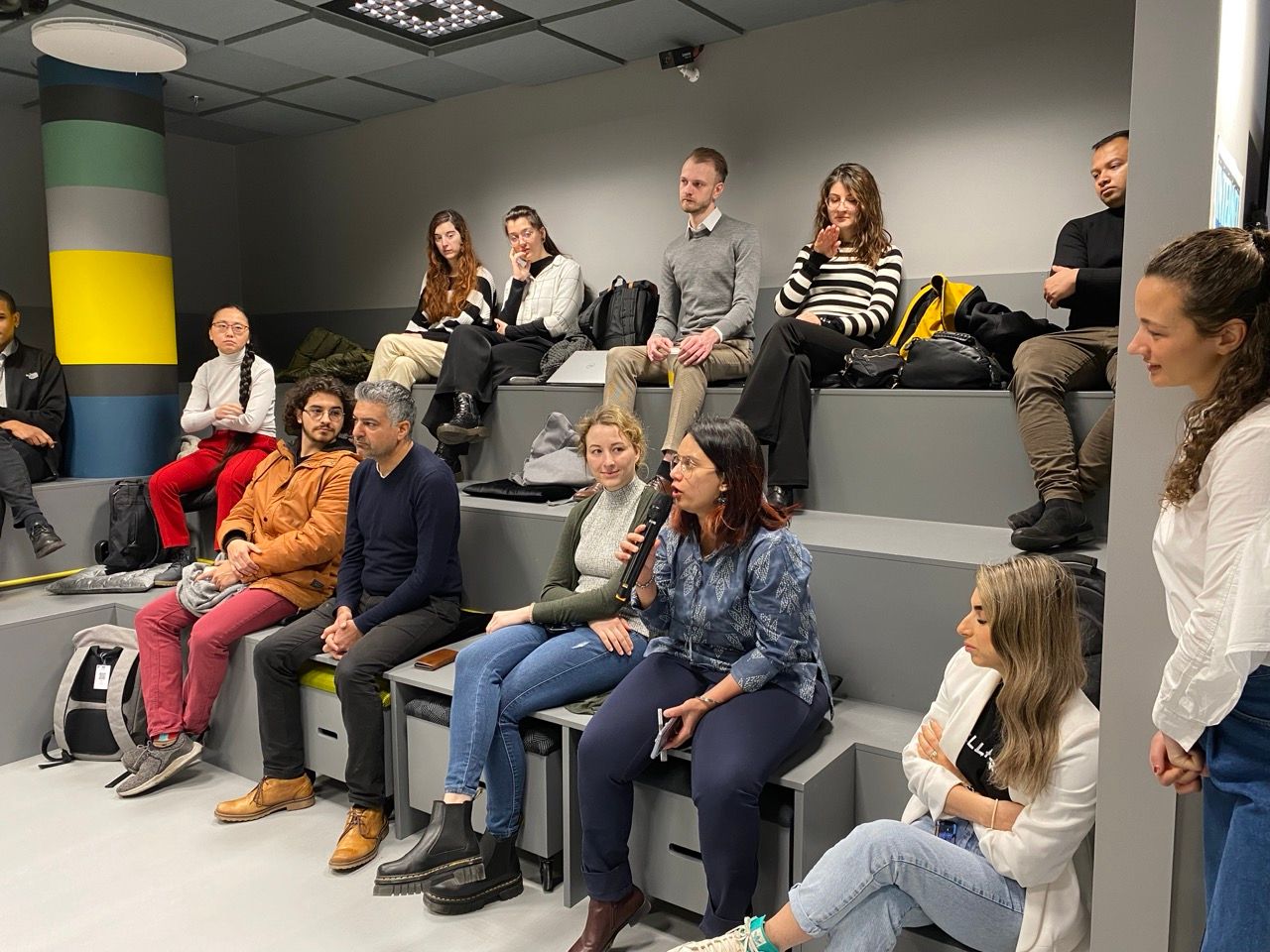
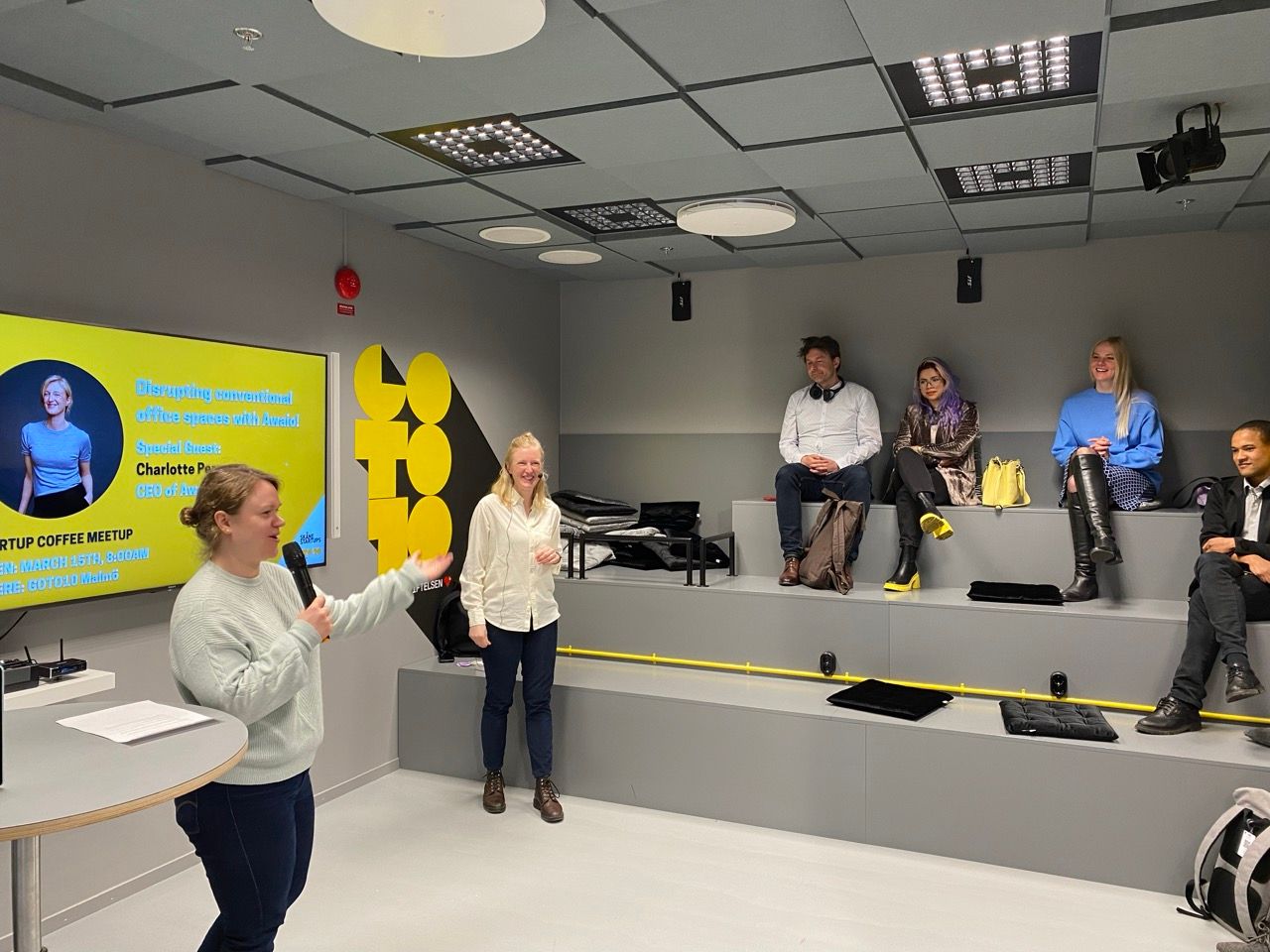
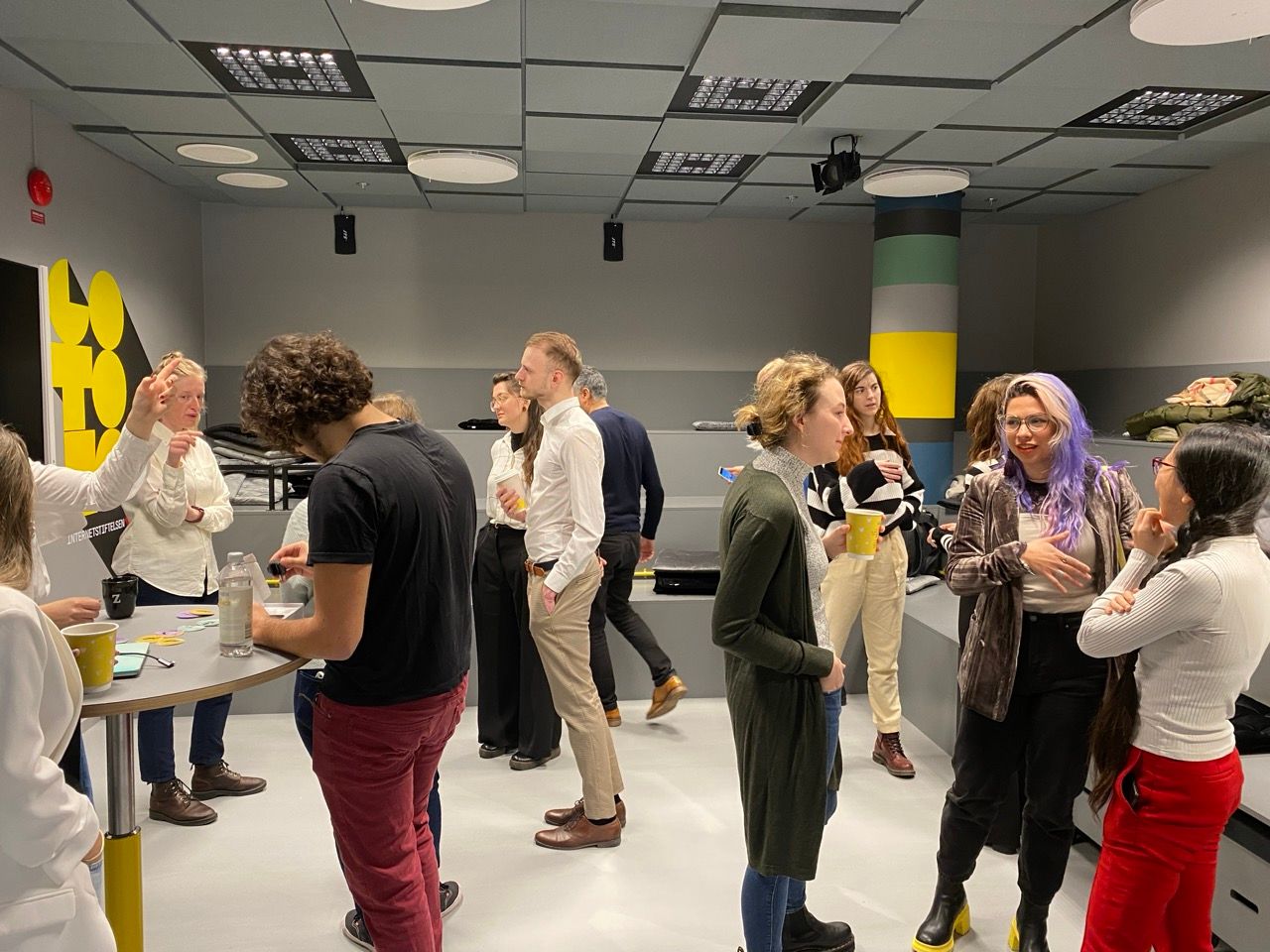
Our team hosted the Startup Coffee
Entrepreneurs especially early-stage founders consider networking opportunities a means to navigate the process of building long-term relationships. Startup Coffee Meetup is incomplete without our usual mingle. The idea of getting to know new talents and ideas in the community is luring. We interacted with a like-minded audience who was eager and hungry to learn and be inspired by the ones who have come a long way in their journey.
Miriam Kiehn, Business developer, impact entrepreneur, and founder of Funky Flavor, a healthy range of fermented foods and drinks.
Argia Martinez Egurcegui, Spanish teacher and founder of Spanish from home.
Ali Jahanmiri, founder of Projects24, a global marketplace for industrial projects, services, and subcontracting.
Sheikh Raiyamuzzaman, early-stage entrepreneur and founder of rnwist
Lorena Ojeda, CEO, and Co-founder of WkndBad, a digital food innovation platform
Paolo Nardi Fernandez, Co-Founder & Sustainability Innovator at Futurely, a sustainability firm helping organizations create sustainable solutions for a better future.
Gabriela Anna Zoltek, a cross-cultural communications consultant
Karl-Fredrik Hagman, a Python programmer, and data science student
Dadmehr Berahmandzadeh, a data science student and AI and machine learning enthusiast
Daniel Tkaczyk, Mechanical Design Engineer at IKEA
Pauliina Paasi, Purchasing intern at Awaio, an AI based office sharing platform
Over and above the conversation and time we spent in Charlotte's journey, one of the key takeaways of the day is a future that is a critical reminder that no matter how established an industry is; there are always opportunities to disrupt the conventional in exchange for something visionary.

